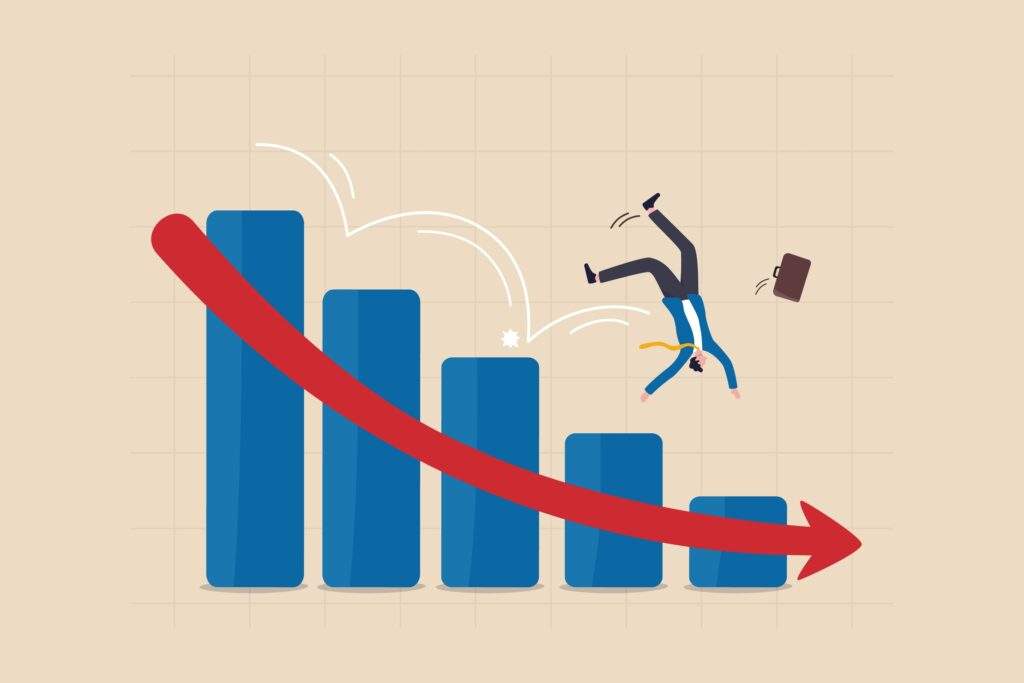
Warning signs of another recession are looming. If you run or manage a small to midsize business, you’re probably wondering what that could mean for your future. How can your business brave the uncertainty of another economic downturn?
Rather than panic, prepare.
As reported by Small Business Trends, 44% of small business owners have not prepared for a recession. While that should be a surprising number, many business owners may not be sure exactly how to prepare.
Here are some tips to make sure you’re taking the right steps to support your small business for whatever the economic future holds:
Maintain Healthy Cash Flow
One of the best ways to support your cash flow is to get paid faster. That could mean shortening the window for customer payments, but that strategy is more likely to lead to a negative perception. After all, you don’t want your customers to think you’re squeezing them because you’re worried about getting paid.
The best way to maintain healthy cash flow is to resolve late payments. That process includes:
- Understanding who owes you money
- Knowing how much they owe
- Providing an easy way for them to pay you
Many customers submit payments late because you haven’t made it easy for them. A customer portal can provide an easy way to streamline the payment process and ensure that you’re getting paid on time.
Cut Software Spending
If you’re using more than a single software to manage your business, there’s a good chance you’re paying more than you need to.

To prove it to yourself, go ahead and add up the total cost from all of your software subscriptions and licenses. Next, take a look at the pricing for different all-in-one business management solutions.
ERP software applications vary in their pricing models. Some have flat monthly subscriptions, per-user pricing, or yearly payments.
When transitioning to new software, it might be best to try a monthly subscription. Don’t pay for a full year when you aren’t sure what the results will be. It’s also worth looking into whether your software vendor has a guarantee (and if so, what kind).
Improve Your Sales Structure
Increasing your sales is easier said than done. Especially in turbulent economic times. But with the right ERP software, you can put the structures in place to help your sales team do what they do best: sell.
CRM software doesn’t just help you target specific customers and groups. It’s far beyond a database of your customers. It also helps you improve your customer retention and reduce administrative tasks.
The right CRM system can give you insight on where your sales are coming from, how to target, and how to retain customers. If that system integrates with your other management software resources, you’ll have far better reporting and automation opportunities as you assess the financial side of your sales.
Maximize Employee Productivity
Think about the core functions of your business. In a recession, cost-cutting shouldn’t be your only recourse. You should also be looking to increase your productivity.

In your business, there are many ways to express waste: time to enter data, fix errors, communicate between departments, find essential documents, communicate with customers, assess project status…and plenty more.
During a recession, successful businesses have optimized their operational efficiency. They work smartly and their customers trust them. Productivity software can help your employees make the best use of their time.
Conclusion
While there is no exact way to predict an economic recession, many of the warning signs exist. If your business doesn’t have the financial security of a major corporation, it’s important to understand what you’ll need to do to prepare. A large part of that preparation will include investing in new technologies to help your business power through whatever comes your way.
The earlier you begin an internal review, the better you’ll understand what needs to change, or what you need to put in place.

